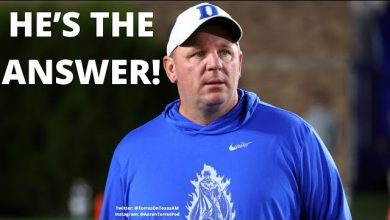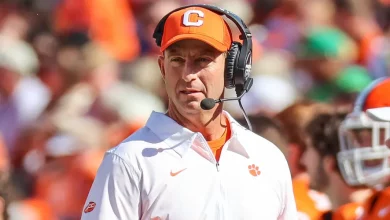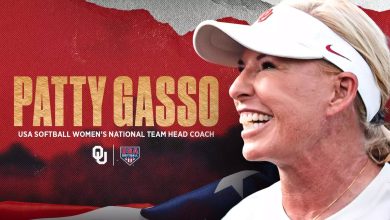Depending on your definition of “good,” Dallas Cowboys owner Jerry Jones may or may not be a good NFL owner.

Jerry Jones, the owner of the Dallas Cowboys, is one of the most polarizing figures in the NFL. His tenure as the head of America’s Team has spanned over three decades, and during that time, he has been at the forefront of some of the most significant developments in the league. From the construction of AT&T Stadium to his outspoken presence in the media, Jones has managed to create a brand around the Cowboys that is larger than life. But the question remains: Is Jerry Jones a “good” NFL owner?
The answer to this question is highly subjective and depends largely on how one defines what makes a “good” owner in the first place. While Jones is undoubtedly one of the most successful and influential figures in sports, the question of whether he has been good for the Cowboys, their fans, and the league as a whole is still widely debated. Some argue that his leadership has helped the Cowboys become one of the most valuable franchises in sports, while others contend that his hands-on approach has been detrimental to the team’s on-field performance.
In this article, we will explore both sides of the argument—examining how Jerry Jones has been a “good” owner in some respects and how his methods might be seen as problematic in others. By the end, we will have a nuanced understanding of what makes a “good” NFL owner and whether Jerry Jones fits that definition.
The Case for Jerry Jones as a “Good” Owner
1. Financial Success and Brand Building
One of the key metrics for evaluating an NFL owner is their ability to build the financial value of the team and the league. By this standard, Jerry Jones is one of the most successful owners in NFL history.
Since Jones purchased the Dallas Cowboys in 1989 for $140 million, the team’s value has skyrocketed, and it is now the most valuable franchise in the NFL. As of 2024, the Cowboys are estimated to be worth $9 billion, according to Forbes, a staggering increase from their original purchase price. Under Jones’ stewardship, the Cowboys have maintained their status as a cultural and financial powerhouse, generating more revenue than any other team in the league.
Jones has also turned the Cowboys into a global brand. He has always understood the importance of marketing, and through strategic decisions such as securing sponsorships, expanding the team’s presence in the media, and creating an iconic stadium, Jones has elevated the Cowboys beyond a football team into an international brand. The Cowboys’ success off the field, particularly in terms of merchandise sales, sponsorship deals, and overall visibility, is undeniable. For example, AT&T Stadium, the team’s home base, is considered one of the premier sports venues in the world and has become a prime destination for major events such as the Super Bowl, NCAA Final Four, and international soccer matches.
Jones’ ability to run a highly profitable organization that attracts top-tier sponsorships, merchandise sales, and global viewership has played a significant role in the NFL’s overall success. His success as a businessman is one of the primary reasons why many consider him a “good” owner—at least in the context of maximizing financial value and creating a sustainable long-term revenue model for his team.
2. A Willingness to Spend on Talent
Another area in which Jerry Jones is often viewed as a good owner is his willingness to spend money to acquire top talent. Jones is not shy about paying for star players or securing high-priced free agents if he believes it will improve the team’s chances of winning.
The Cowboys have been a big spender in free agency over the years, acquiring marquee players like DeMarcus Ware, Brandon Carr, and Amari Cooper. Jones has consistently supported his team’s management with the financial resources necessary to compete with other NFL powerhouses. The fact that the Cowboys are routinely at or near the top of the league in terms of salary cap space usage is indicative of Jones’ commitment to putting the best possible roster on the field.
Additionally, Jones’ approach to signing big-name quarterbacks like Dak Prescott and paying elite defenders like Micah Parsons demonstrates that he is committed to keeping his team competitive by retaining top talent. These high-profile moves are in line with the owner’s desire to maintain a winning product on the field and demonstrate his willingness to spend to get there.
For many fans, this financial commitment to assembling a competitive roster is a hallmark of what makes Jones a “good” owner. His deep pockets and dedication to winning have allowed the Cowboys to consistently field a talented team, and there is little doubt that Jones’ financial support has helped elevate the team to the elite levels of NFL competitiveness.
3. Expanding the Cowboys’ Legacy
Under Jerry Jones’ leadership, the Cowboys have maintained their status as one of the most recognizable and beloved teams in the NFL. The Cowboys are regularly one of the highest-rated teams in terms of viewership, both domestically and abroad, and Jones has worked tirelessly to maintain the team’s legendary status.
Through various ventures, including enhancing fan experiences in AT&T Stadium and expanding the team’s social media and marketing presence, Jones has ensured that the Cowboys are always in the public eye. He understands the emotional connection fans have with the team and continues to cultivate that relationship through innovative programs, fan engagement strategies, and investment in high-quality infrastructure. His foresight in creating a business model that blends sports with entertainment has set the Cowboys apart from other franchises and made them an icon in American sports culture.
The Case Against Jerry Jones as a “Good” Owner
While Jerry Jones has undoubtedly been a successful businessman, his approach to owning and managing the Cowboys has been met with significant criticism, particularly regarding the team’s on-field performance. Although the Cowboys have been competitive under Jones’ leadership, the franchise has not captured an NFC Championship since the 1995 season. This continued lack of postseason success is one of the most significant marks against Jones’ tenure as owner.
1. Overly Hands-On Approach
One of the most frequent criticisms of Jerry Jones as an owner is his tendency to be overly involved in football operations. Jones, who also serves as the general manager of the Cowboys, has long been known for his hands-on approach to team management. While this has worked in certain instances, it has also led to problems in areas such as player development, decision-making, and coaching hires.
Jones has often made high-profile decisions that may not have been in the best interest of the team, such as forcing trades or signing players based on personal intuition rather than sound football judgment. His involvement in selecting coaches has also been a point of contention. For example, the hiring of Jason Garrett in 2010 was highly controversial, and many questioned whether Garrett was the right person for the job given his lack of previous head coaching experience. While Garrett had some success with the Cowboys, including three playoff appearances, the team was never able to break through and win a Super Bowl under his leadership. Jones’ role in the hiring and firing process raised concerns about his ability to objectively assess coaching talent.
Jones’ tight grip on decision-making has often been perceived as a hindrance to the team’s success. Many critics argue that the Cowboys would be better served if Jones took a step back from day-to-day football decisions and allowed a general manager or team president to take the lead. However, Jones has long been unwilling to cede control, often inserting himself into major decisions.
2. Lack of Postseason Success
Despite consistently fielding competitive teams, the Cowboys have failed to make a deep playoff run for nearly three decades. Since their last Super Bowl win in 1995, the Cowboys have only made it past the divisional round of the playoffs a handful of times. This lack of postseason success is the most significant stain on Jerry Jones’ legacy as an owner.
Many believe that Jones’ interference in football decisions, coupled with a lack of long-term strategic vision, has contributed to this lack of playoff success. While he has spent heavily on talent, some argue that his inability to establish a coherent team philosophy or maintain a long-term commitment to coaching stability has prevented the Cowboys from breaking through in the postseason. Teams like the New England Patriots, Kansas City Chiefs, and San Francisco 49ers have built sustained success by hiring and empowering the right people in key roles, and many feel that Jones has been too involved in the decision-making process to allow the Cowboys to replicate that model.
3. The Focus on Brand Over Football
Jerry Jones’ emphasis on branding and business growth has been both a strength and a weakness. While the Cowboys are one of the most recognizable brands in all of sports, critics argue that Jones has sometimes prioritized the team’s commercial success over football performance. The emphasis on marketing, expanding the Cowboys’ brand, and increasing revenue may have taken precedence over making the right football decisions.
This “brand-first” mentality has led to questions about whether Jones is truly committed to winning Super Bowls or whether his primary focus is maintaining the Cowboys’ status as a business powerhouse. For some, this is a clear indicator that Jones may not be the ideal owner for a team that has struggled to capture a championship over the last few decades.









